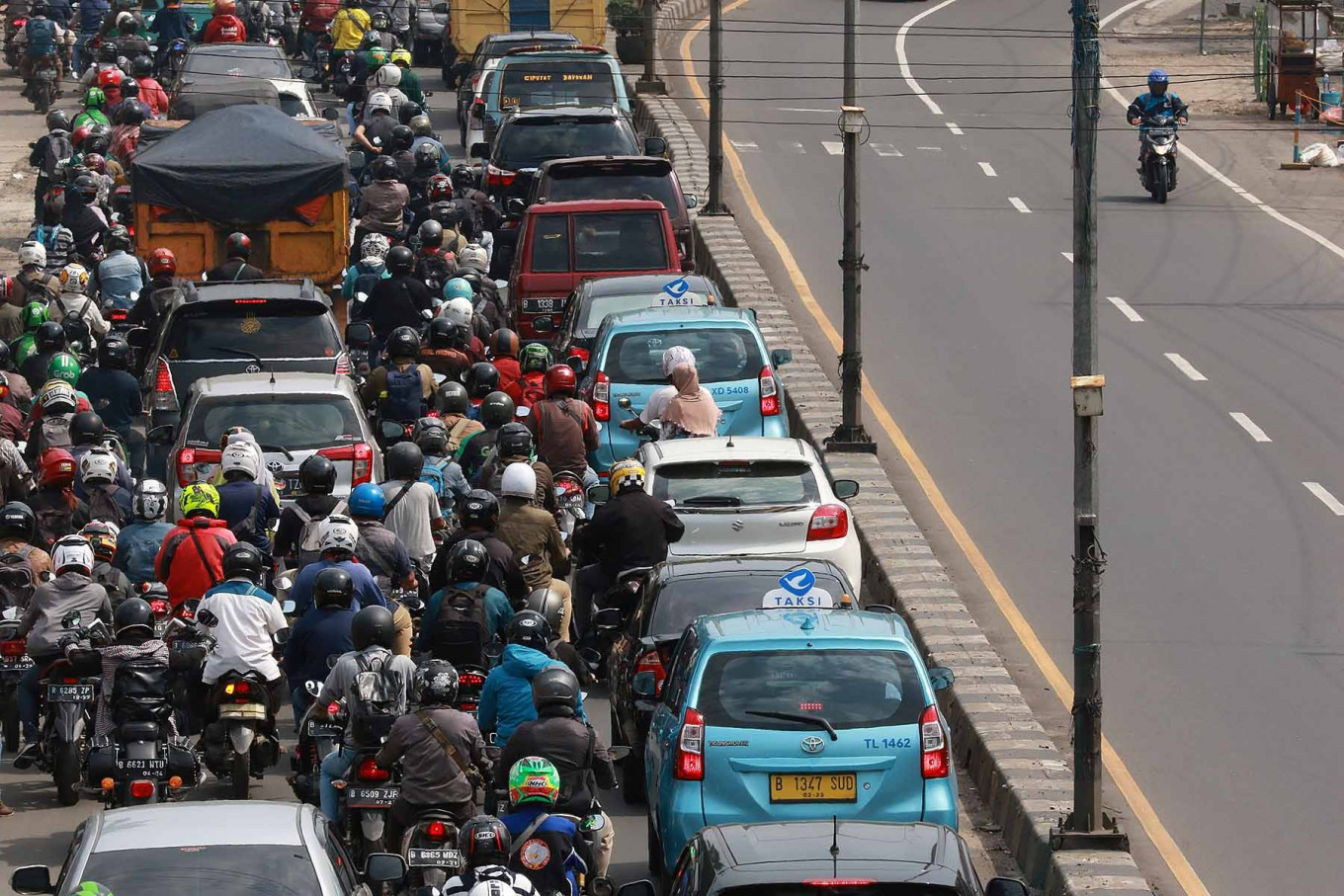Popular Reads
Top Results
Can't find what you're looking for?
View all search resultsPopular Reads
Top Results
Can't find what you're looking for?
View all search resultsCongestion-free Jakarta
Data shows that every time Jakarta reimposes restrictions, traffic congestion and air pollution declines.
Change text size
Gift Premium Articles
to Anyone
T
hanks in part to large-scale social restrictions to curb COVID-19 transmissions, Jakarta has been relatively free of traffic congestion. Instead, the capital’s streets have seen an invasion of bicycles, particularly in the morning, which have taken the place of private cars who used to compete for space on packed thoroughfares and roads that once typified Jakarta rush hour.
According to the 2020 TomTom Traffic Index, an annual report published by Dutch location technology company TomTom, Jakarta is no longer among the world’s top 10 cities known for their traffic gridlock. Jakarta ranked 37th in the latest report, a significant improvement from 10th in 2019.
Reduced traffic congestion means a lot for a metropolitan city like Jakarta. The capital’s population of 10.77 million can finally breathe cleaner air as carbon emissions from motorized vehicles have dropped.
International air quality technology company IQAir found that Jakarta air pollution levels had reached their best score of 25 on Friday, a significant drop from 153 on Nov. 23, 2020, when public activity restrictions were not yet in place.
At the start of the year, the government decided to impose top-down restrictions (PPKM) in the densely populated islands of Java and Bali, including for two weeks in Jakarta starting on Jan. 11. It was recently announced that these curbs have been extended for another two weeks until Feb. 3, as the number of new COVID-19 cases has continued to rise. Jakarta remains the country’s epicenter of the novel coronavirus.
Under the PPKM scheme, people’s mobility is markedly limited, with only 25 percent of a company’s employees allowed to work from the office, while retail stores and restaurants must operate at only 25 percent capacity and close at 7 p.m.
Data shows that every time Jakarta reimposes restrictions, traffic congestion and air pollution declines. But when these measures are eased, traffic and pollution worsen yet again.
The prolonged health crisis has given the city administration the opportunity to reshape its traffic management, as Jakartans will hope to see improved traffic and air quality even when the pandemic is over and life returns to normal.
The city administration can claim to have done a lot to solve Jakarta’s traffic hassles, but we have yet been able to see how the so-called improvements work in a normal setting. First and foremost, the city must continue to promote public transportation as a primary mode of commuting. People would be willing to take public transportation as long as it offered punctuality and convenience.
The second and third phases of the Jakarta MRT will be part of the solution, and completion of the megaproject will require support from all Jakartans. The first MRT line connecting Lebak Bulus in South Jakarta with the Hotel Indonesia traffic circle in Central Jakarta has been a reliable choice of transportation since the route opened in March 2019.
The integration of public modes of transportation will be key in convincing people to leave their cars at home. The Jakarta government has developed a system to realize the integration, but better management and infrastructure will be needed to ensure efficient and seamless services.










